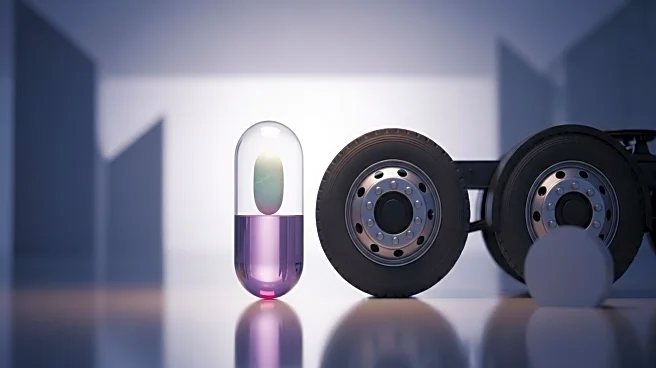What's Happening?
President Trump has announced new tariffs on imports to the U.S., specifically targeting pharmaceutical products and heavy trucks. Branded or patented pharmaceutical imports will face a 100% tariff unless the company is building a manufacturing plant in the U.S. Additionally, a 25% tariff will be imposed on heavy trucks, and a 50% levy on kitchen cabinets and bathroom vanities. These measures are set to take effect on October 1, 2025, as part of the administration's strategy to encourage domestic manufacturing and reduce reliance on foreign imports.
Why It's Important?
The new tariffs are likely to have significant implications for the pharmaceutical and automotive industries. By imposing high tariffs on imported drugs, the policy aims to incentivize pharmaceutical companies to establish manufacturing operations within the U.S., potentially boosting domestic production and job creation. However, it may also lead to increased costs for consumers and healthcare providers. The tariffs on heavy trucks could impact logistics and transportation sectors, potentially leading to higher costs for goods and services. These measures reflect the administration's broader protectionist trade agenda.
What's Next?
As the tariffs take effect, affected industries may seek to negotiate exemptions or adjust their supply chains to mitigate the impact. Pharmaceutical companies might accelerate plans to build U.S. facilities, while the automotive sector could explore alternative sourcing strategies. The policy could also prompt responses from trade partners, potentially leading to retaliatory measures. Stakeholders will be closely watching for any adjustments or clarifications from the administration regarding the implementation of these tariffs.









